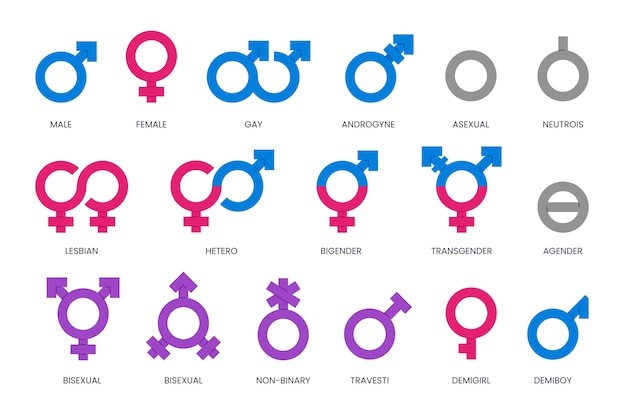
Η αμφιφυλοφιλία ή αμφισεξουαλικότητα είναι η συναισθηματική, η ρομαντική ή/και η σεξουαλική έλξη ή σεξουαλική συμπεριφορά, προς άτομα του ίδιου και διαφορετικού φύλου.
Πολλοί υποθέτουν ότι πρόκειται, είτε για μια ενδιάμεση «στάση στην πόλη» των γκέι, είτε απλώς για μια πειραματική προσωρινή παράκαμψη από τη ζωή των στρέιτ. Όμως, η έρευνα δείχνει ξεκάθαρα ότι η αμφιφυλοφιλία είναι μια μοναδική, έγκυρη και επίσημη σεξουαλική ταυτότητα. Οι παράγοντες που μπορεί να οδηγήσουν κάποιον να γίνει bisexual είναι σύμφωνα με επιστήμονες ψυχολογικοί, κοινωνικοί, και κατά κόρον γονιδιακοί – βιολογικοί.
Παρόλα αυτά πρέπει να γνωρίζετε ότι ένας έφηβος που έχει αυτό τον σεξουαλικό προσανατολισμό περνάει τις δικές του δοκιμασίες, προσπαθώντας να αναπτύξει μια δική του ταυτότητα στα πλαίσια του κοινωνικού στιγματισμού. Χαρακτηριστικά που διέπουν την περίοδο προσπάθειας της αποδοχής είναι:Κοινωνική απομόνωση
Έλλειψη αυτοσεβασμού
Συνεχής επιθυμία να ευχαριστούν τους άλλους
Άγχος
Κατάθλιψη
Σχολικές αποτυχίες
Κατάχρηση αλκοόλ και ουσιών
Αυτοί οι έφηβοι θα αντιμετωπίσουν δυσκολίες στην ενσωμάτωση της θετικής σκέψης γύρω από το σεξουαλικό προσανατολισμό και την ταυτότητά τους.
Γι’ αυτό επηρεάζει πολύ το περιβάλλον ενός αμφιφυλόφιλου, είτε άνδρα, είτε γυναίκας, καθώς μέσα από έρευνες φαίνεται πώς άτομα που εισπράττουν επιεική συμπεριφορά και έχουν την αποδοχή, εκτιμούν τον εαυτό τους, αλλά και την αξία τους .
Το να νιώθετε ότι σας αποδέχονται όπως είστε πραγματικά εκείνοι που αγαπάτε είναι απίστευτα σημαντικό για τη συνολική ευημερία.
Μία κατάσταση σαν αυτή απαιτεί μία ορθολογική και μετρήσιμη ανταπόκριση. Πολλοί γονείς που θα έρθουν αντιμέτωποι με το άκουσμα του “Μαμά – Μπαμπά είμαι bi” θα αντιδρούσαν με συναισθηματικό πόνο και ματαίωση. Μην κατηγορείτε τον εαυτό σας.
Σκέφτεστε εάν πρέπει να τον μαλώσετε; Ή απλώς να αποδεχτείτε αυτή την επιλογή ως τρόπο ζωής και να τη σεβαστείτε;
Κάντε μία προσπάθεια να συνδεθείτε συναισθηματικά μαζί του.
Ευχαριστήστε τον που σας μίλησε .
Ενημερώστε τον ότι είστε εκεί .
Επισφραγείστε της αγάπης σας.
Κάντε διάλογο για το θέμα.
Όλα αυτά είναι χρήσιμα για να είστε υποστηρικτικοί προς τα αμφιφυλόφιλα άτομα που αγαπάτε και εν κατακλείδι, με αυτούς τους τρόπους σαν γονιός θα είστε δίπλα στο παιδί σας και όχι απέναντί του.
ΠΗΓΗ:
